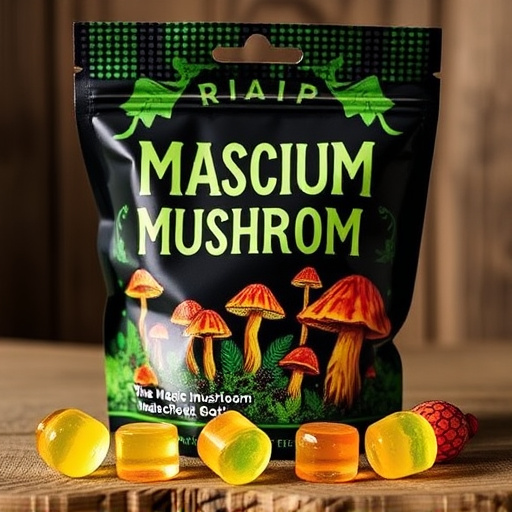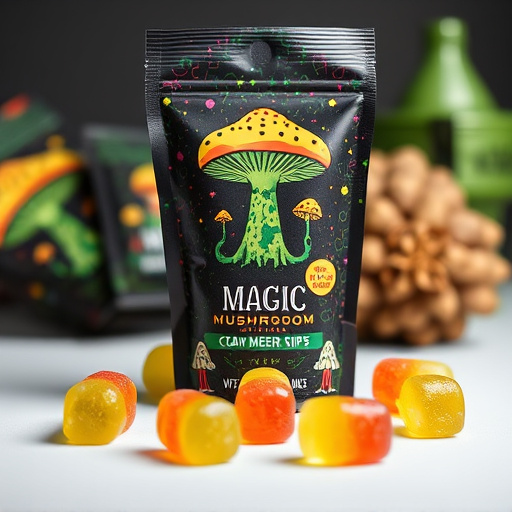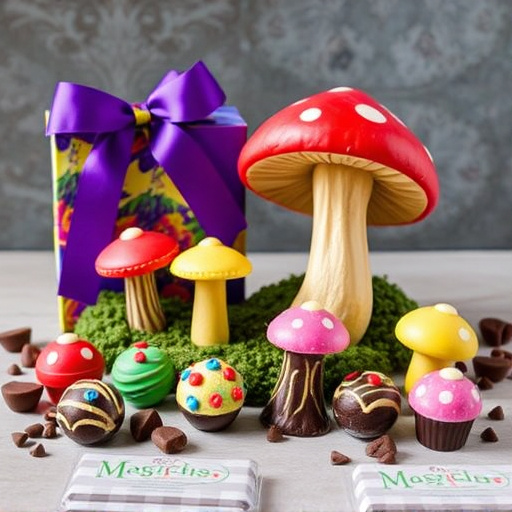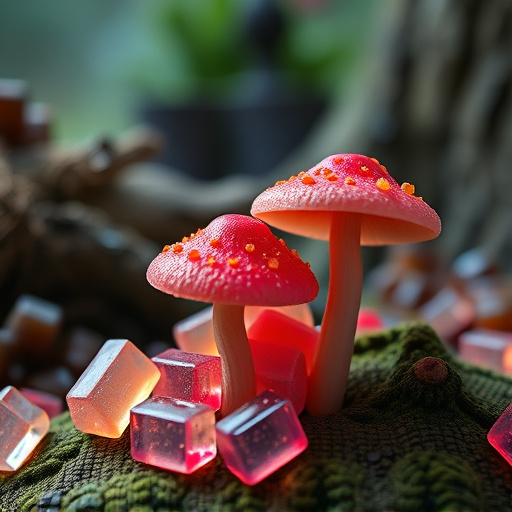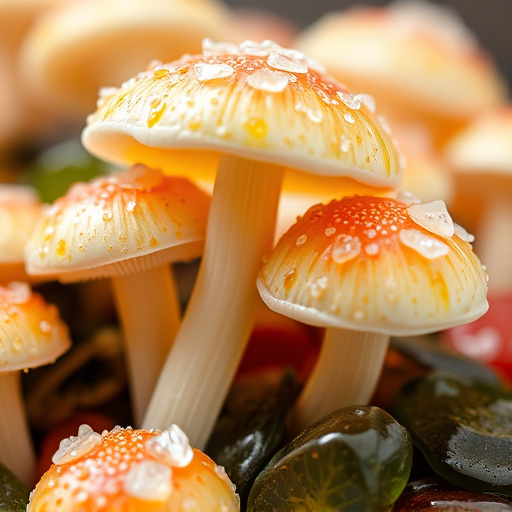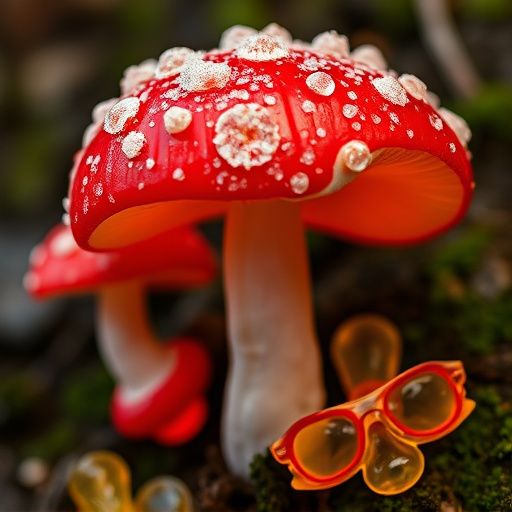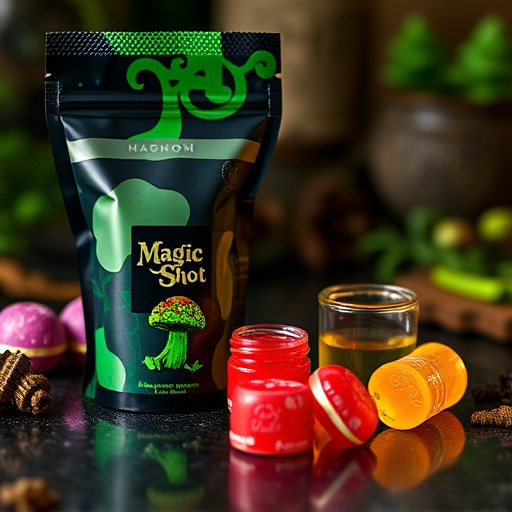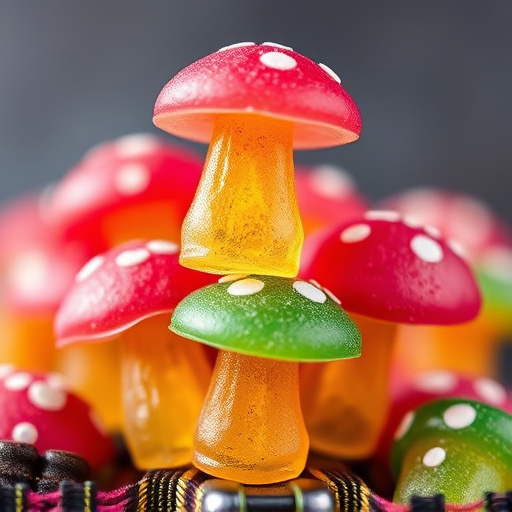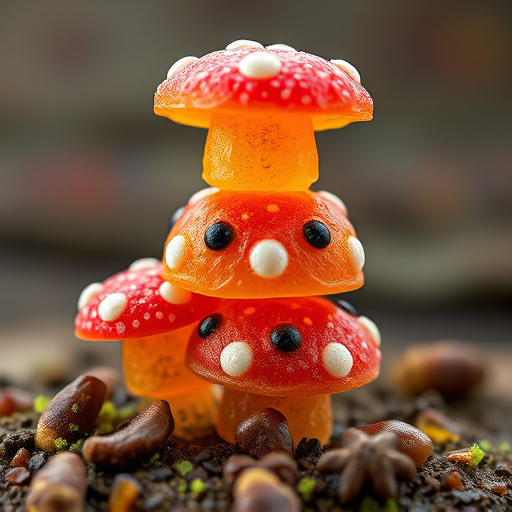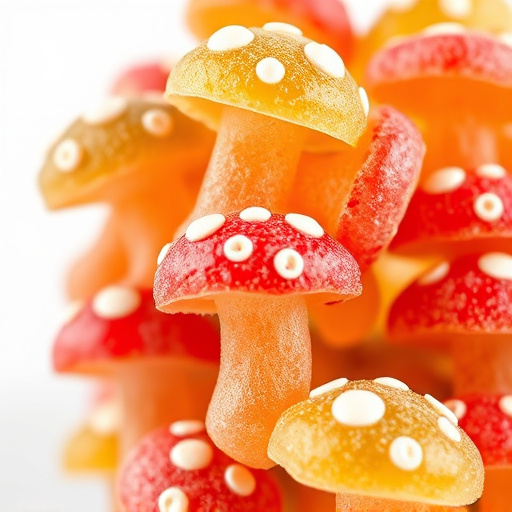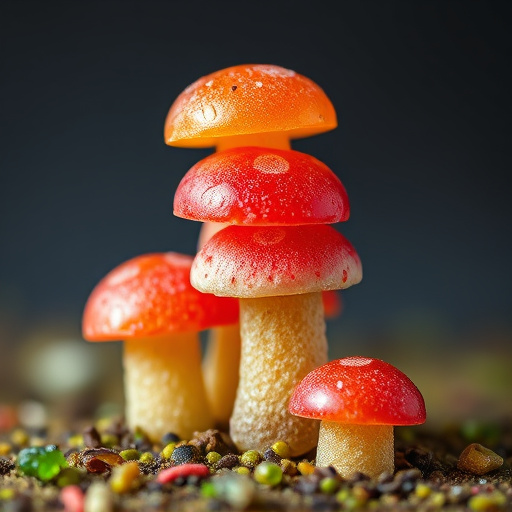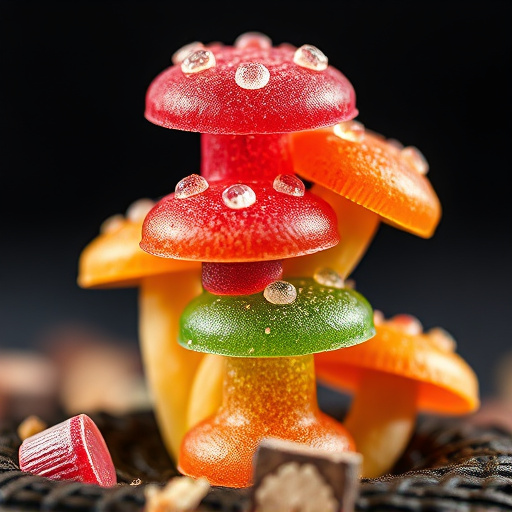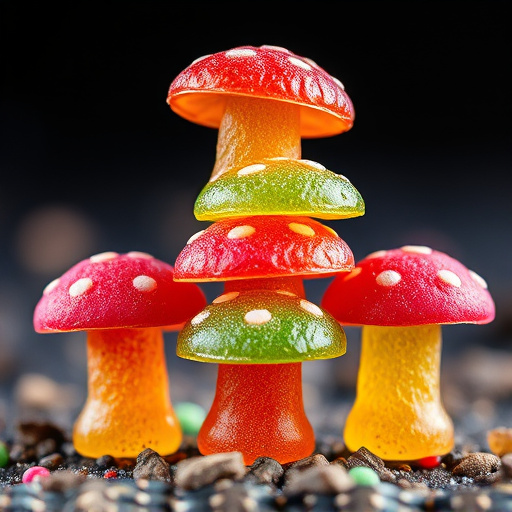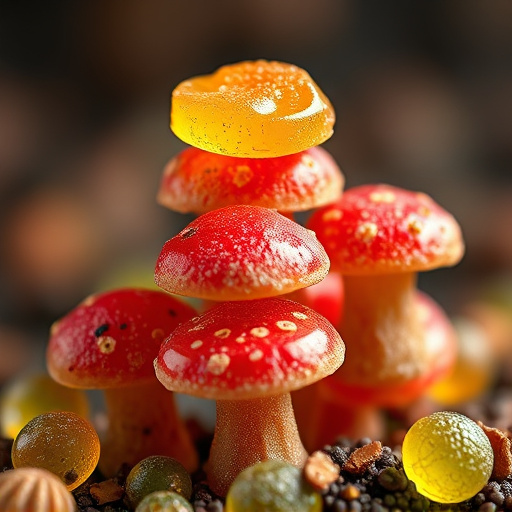Magic Mushroom Gummies, popular for their therapeutic potential, leverage psilocybin's ability to elevate dopamine levels in the brain, resulting in enhanced mood, perception, and even spiritual experiences. This compound is being explored as a treatment for depression and anxiety but requires caution due to unpredictable effects, quality control issues, and varying legal statuses globally. Always consult healthcare professionals before consuming any substance that influences dopamine levels.
“Uncover the intriguing world of Magic Mushroom Gummies—a modern twist on traditional psychodelics. This comprehensive guide explores the rise in popularity of these edible treats, offering a unique way to experience heightened consciousness. We delve into the science behind their effect on dopamine levels, providing an insightful overview for curious minds. From potential therapeutic benefits to legal complexities, this article covers everything you need to know about Magic Mushroom Gummies and dopamine-related experiences.”
- Understanding Magic Mushroom Gummies: A Comprehensive Overview
- The Science Behind Magic Mushrooms and Dopamine
- Potential Benefits, Risks, and Legal Considerations of Using Magic Mushroom Gummies
Understanding Magic Mushroom Gummies: A Comprehensive Overview
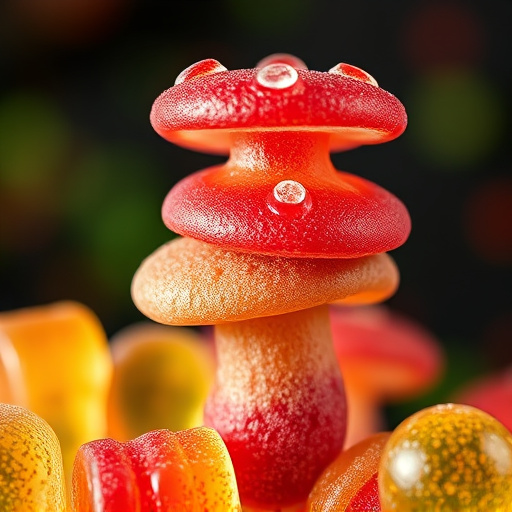
Magic Mushroom Gummies have gained significant attention in recent years as a novel way to experience psychedelic effects. These gummies, derived from psilocybin mushrooms, offer an edible alternative to traditional methods of consumption. The appeal lies not only in their convenience but also in the potential therapeutic benefits they promise. One of the key aspects that make Magic Mushroom Gummies noteworthy is their effect on dopamine levels. Dopamine, a neurotransmitter associated with pleasure and reward, plays a crucial role in our mood and motivation. Research suggests that psilocybin, the active compound in magic mushrooms, can increase dopamine activity in the brain, leading to heightened sensory perception and altered states of consciousness.
This enhanced dopamine transmission is believed to underlie the intense emotional experiences and mystical states often reported by users. Moreover, studies have explored the potential of Magic Mushroom Gummies as a tool for mental health treatment, particularly in addressing conditions like depression and anxiety. By manipulating dopamine levels, these gummies may offer a novel approach to therapeutic interventions, providing users with profound insights and positive emotional shifts. However, it’s essential to emphasize that, like any psychedelic substance, magic mushroom gummies should be approached with caution and proper education due to their powerful effects.
The Science Behind Magic Mushrooms and Dopamine
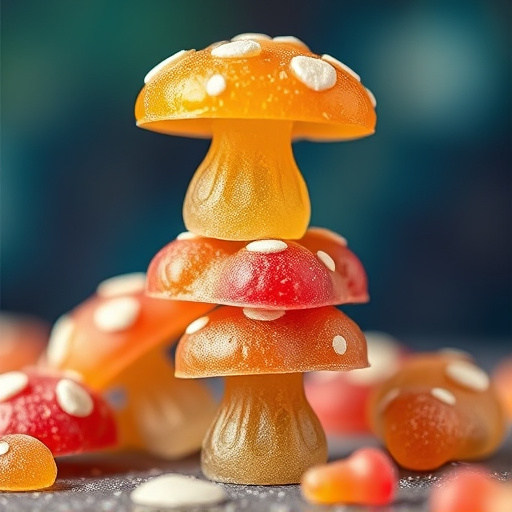
Magic mushrooms have long been known for their mind-altering effects, but science is only now beginning to uncover the intricate ways they interact with our brains. One key player in this interaction is dopamine, a neurotransmitter responsible for regulating pleasure, reward, and motivation. When consumed, psilocybin, the active compound found in magic mushrooms, has been shown to increase dopamine levels in the brain. This surge in dopamine can lead to intense feelings of euphoria, heightened senses, and altered perceptions—all hallmarks of the classic “magic mushroom trip.”
Research suggests that this interaction may have therapeutic potential. Boosting dopamine levels could help alleviate symptoms of depression, anxiety, and even addiction. Magic mushroom gummies, for instance, offer a convenient and discreet way to potentially tap into these benefits. By delivering psilocybin in a gummy form, users can experience the psychological effects while maintaining a sense of control over their dose and setting.
Potential Benefits, Risks, and Legal Considerations of Using Magic Mushroom Gummies
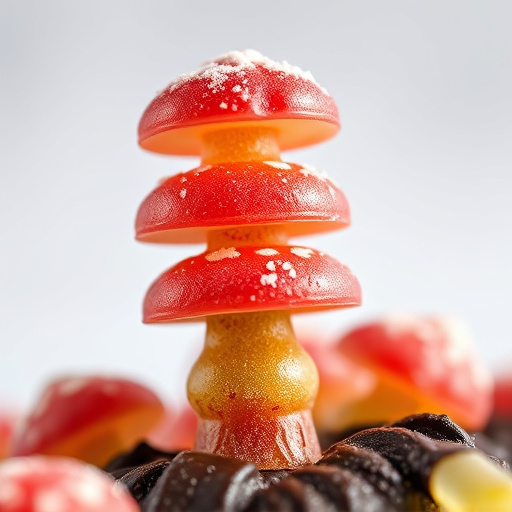
Magic mushroom gummies, a modern twist on traditional psychadelics, offer potential therapeutic benefits in managing stress, anxiety, and depression. Studies suggest that psilocybin, the active compound in magic mushrooms, can stimulate dopamine production in the brain, leading to enhanced mood, creativity, and spiritual experiences. Gummies provide a discrete and controlled method of consumption, potentially appealing to those seeking alternative treatments outside traditional therapy.
However, risks are associated with using any substance, especially when it comes to magic mushroom gummies. The effects can be unpredictable, leading to intense hallucinations or adverse reactions in some individuals. Quality control is another concern; unregulated production may result in inconsistent potencies and unknown additives. Legally, the status of magic mushrooms varies globally, with many countries considering them illegal while others are moving towards decriminalization and medical use. In regions where they remain illicit, possession and distribution can lead to severe legal consequences. Always prioritize safety and consult a healthcare professional before trying any new substance, especially those with potential mind-altering effects on dopamine levels.
Magic mushroom gummies are a controversial yet intriguing topic in the realm of psychoactive substances. While they offer potential therapeutic benefits, particularly in managing anxiety and depression, their recreational use remains illegal in many regions due to safety concerns. The science behind magic mushrooms and dopamine suggests that these compounds can significantly impact brain chemistry, but more research is needed to fully understand their effects. As the debate continues, it’s crucial to approach magic mushroom gummies with caution, considering both the promising potential and the inherent risks associated with their consumption.
